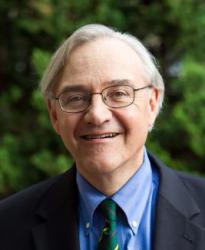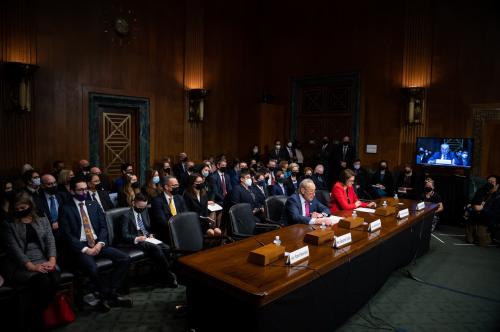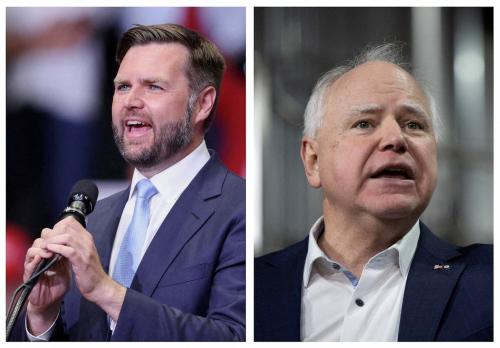2024
The conservative legal movement has shown remarkable success at defining the terms of the debate over jurisprudence, while the various visions of liberal theories of law that confront conservative orthodoxy have struggled to gain currency in the political sphere. Conservative legal theorists have coalesced around a relatively compact and politically effective set of ideas while their liberal critics have offered a diverse series of responses. In the face of conservative victories, can liberals forge a coherent response? Or will differences among liberals get in the way? What events might shake up the current state of the debate?
On December 1, the Brookings Institution hosted a conference on the asymmetry between liberal and conservative visions of jurisprudence. Participants discussed how modern conservative orthodoxy arose, the competing visions of liberal jurisprudence, and the prospects for political backlash against conservative orthodoxy and for a resurgence of liberal jurisprudence.
Following each panel, the participants took questions from the audience.
Agenda
-
December 1
-
9:30 AM -- Welcome
-
9:45 AM -- Opening Remarks
NFNoah Feldman Bemis Professor of International Law -
10:15 AM -- The Rise of the Conservative Legal Movement
PSKPamela S. Karlan Kenneth and Harle Montgomery Professor of Public Interest Law, Stanford Law SchoolLLOLee Liberman Otis Senior Vice President and Faculty Division DirectorSMTSteven M. Teles Professor of Political Science -
1:25 PM -- Featured Speaker
THJHWIThe Honorable J. Harvie Wilkinson, III Judge, United States Court of Appeals for the Fourth Circuit -
2:25 PM -- Will There be a Backlash? Lessons for the Future
MK(vMichael Klarman (by video) Kirkland & Ellis Professor of LawDLDahlia Lithwick Contributing Editor - NewsweekJSJeff Shesol Founding Partner -
11:45 AM -- The Liberal Response: Not One, But Many
WEFWilliam E. Forbath Lloyd M. Bensten Chair in Law and Professor of HistoryJRJeffrey Rosen Former Brookings Expert, Professor - The George Washington University School of Law, President and CEO - National Constitution Center, Contributing Editor - The AtlanticJERJames E. Ryan William L. Matheson & Robert M. Morgenthau Distinguished Professor of LawDASDavid A. Strauss Gerald Ratner Distinguished Service Professor of Law
-



